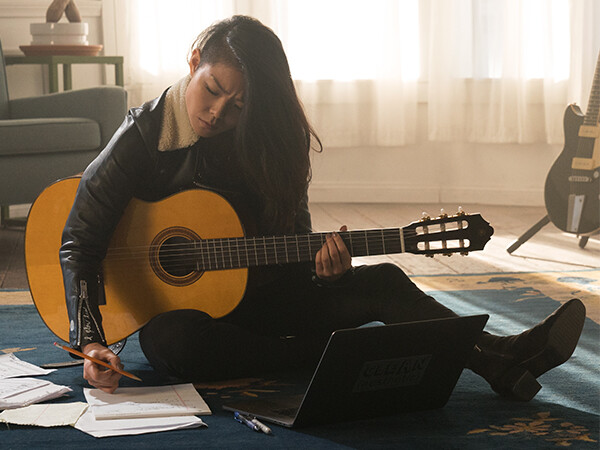Childlike Wonder
Your inner child can help you make better music.
“Why don’t you grow up?”
I think we’ve all had this disparaging remark (or something similar) hurled at us by a friend, foe, relative or significant other at one time or another.
Well, there’s actually a good reason why at least part of you shouldn’t grow up.
It turns out that the childlike sense of wonder we all enjoy in our growing years can help us in our work and creativity by keeping things fresh and fun.
How do you actually go about taking that wonder and turning it into something you can use as an adult? It’s not complicated: Slow it down. Keep things uncomplicated. Be playful. And, perhaps most importantly, keep learning.
Slow It Down
We all know how fast our world moves. But by purposely slowing your mind down, you can more easily open it up to new ideas. A Psychology Today article by Greg Levoy entitled 7 Ways to Spark Your Sense of Wonder recommends that the reader do exactly that, citing a book called Wanderlust, that, in the author’s words, “talks about a peculiar fashion in mid 19th-century Paris, in which strollers sometimes took turtles for walks in the parks, the better to slow their pace and maximize the connoisseurship of their amblings.” While we probably won’t be walking turtles, the point is clear. Just a few days ago I was deeply challenged by a piece of music I was writing, and I made a conscious decision to slow everything down in my mind. Sure enough, it opened me up to go in a successful new direction.
Keep Things Uncomplicated
Children keep things simple because they know no better. It’s an approach I try to take as often as possible, because in the world of writing music for television or film, one of the golden rules is that you can’t step on the dialog, ever. I recently did a session with a co-writer / orchestrator. She wrote a great melody, but I found myself telling her, “Perfect! Now take that and write the same thing with half the notes.” At first she laughed, but you know what? It worked. The final result had a two-note melody that kept the piece spacious and effective … and it achieved the goal of not interfering with the dialog in any way. While it’s not always the case, sometimes less is more.
Be Playful

Kids in a playground are the picture of innocence. They’re simply laughing, running, jumping and playing, with no sense of inhibition or self-consciousness. In the same way, one of the joys of sitting down with an instrument is to be playful. Sometimes I’ll pick up my guitar and just play, without intent or purpose. Similarly, if I’m in a room with some musicians and the idea is fighting us, I find it useful to step back from the seriousness and just play — usually some heavy riff like “Whole Lotta Love” or “Walk This Way,” just to lighten up the energy and break the tension. More often than not, we can then go back to our mission and get the work done … and with a happier, more positive feel.
Keep Learning
Children are sponges for information and knowledge from those who are smarter than they are. Levoy’s article recommends that you “seek out displays of mastery and genius. Immerse yourself in the works of anyone who’s won a Pulitzer, Nobel, Tony, Grammy, Oscar, Olympic or MacArthur award. Stop and stare whenever you enter grand lobbies and atriums. Get a season pass to the art museum. Put the Astronomy Picture of the Day website on the toolbar of your computer.”
A 2018 Time magazine special edition on “The Science Of Creativity” included an article by renowned Leonardo DaVinci biographer Walter Isaacson entitled Learning from Leonardo. In it, Isaacson notes that, “At a certain point in life, most of us quit puzzling over everyday phenomena. We might savor the beauty of a blue sky, but we no longer wonder why it is that color. Leonardo (DaVinci) did. So did Einstein, who wrote to a friend, “You and I never cease to stand like curious children before the great mystery into which we were born.” We should be careful to never outgrow our wonder years or to let our children do so.” Seems to me that DaVinci and Einstein were onto something!
Sometimes we need to be reminded that life, music and playing an instrument can and should be fun. While many of us take our jobs and careers seriously, there’s always room to simplify, to be playful and to keep learning. By retaining that childlike sense of wonder and applying it to our individual crafts, we can push forward while looking backwards.















